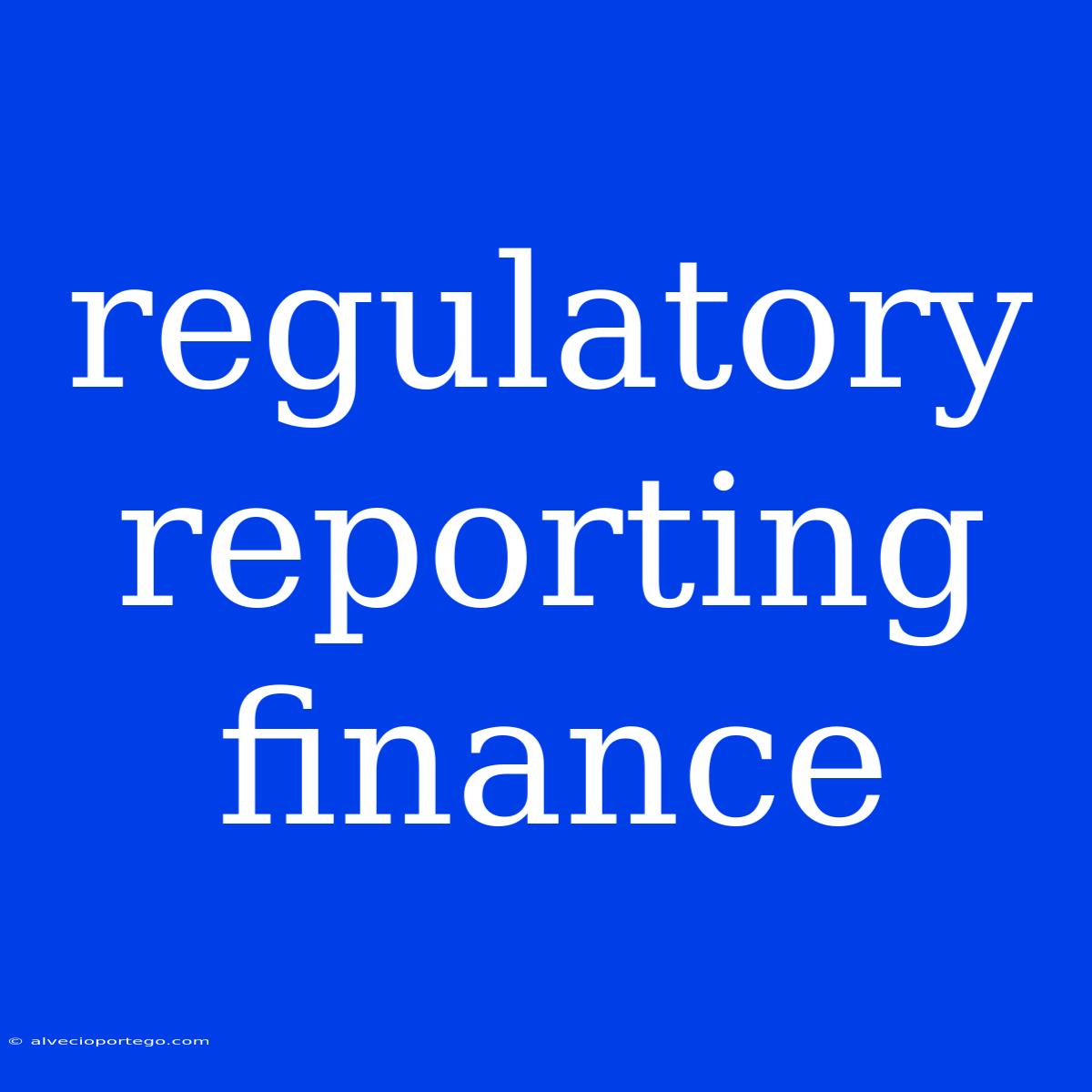Regulatory Reporting in Finance: A Crucial Component of Financial Compliance
Regulatory reporting is an essential aspect of the financial services industry, ensuring transparency, accountability, and adherence to regulatory requirements. This process involves gathering, compiling, and reporting financial data to regulatory authorities, both domestically and internationally.
Why is Regulatory Reporting Crucial?
1. Compliance with Laws and Regulations: Regulatory reporting ensures that financial institutions comply with all applicable laws and regulations, which are constantly evolving. Failure to comply can result in significant penalties, fines, and even legal action.
2. Transparency and Accountability: Regulatory reporting fosters transparency in the financial markets, allowing investors, regulators, and the public to understand an institution's financial health and activities.
3. Financial Stability and Risk Management: By providing insights into financial institutions' operations, regulatory reporting contributes to overall financial stability and helps regulators identify and mitigate potential risks to the system.
4. Investor Protection: Regulatory reporting provides investors with essential information to make informed investment decisions, protecting them from potential fraud or misleading information.
Key Aspects of Regulatory Reporting in Finance
1. Data Collection and Management: This involves collecting financial data from various sources, including internal systems, external data providers, and subsidiaries. Efficient data management systems are crucial for accuracy and timeliness.
2. Data Validation and Reconciliation: Ensuring the accuracy and consistency of financial data is paramount. This involves rigorous validation processes and reconciliation across various systems and data sources.
3. Reporting Format and Submission: Regulatory reports are typically submitted in specific formats, often electronic, following strict guidelines outlined by the regulatory authority.
4. Audit and Oversight: Regulatory reporting processes are subject to internal and external audits to ensure compliance and accuracy.
Challenges in Regulatory Reporting
1. Complexity and Volume: Regulatory reporting is increasingly complex and voluminous, requiring significant resources and expertise.
2. Regulatory Changes: The constantly evolving regulatory landscape poses a significant challenge, requiring frequent updates to reporting processes and systems.
3. Data Integrity and Accuracy: Maintaining data integrity and accuracy across multiple systems is crucial, but challenging due to the volume and complexity of data.
4. Technology Advancements: Leveraging technology to automate processes, improve data management, and enhance compliance is essential but requires careful planning and implementation.
Technology Solutions for Regulatory Reporting
Several technological solutions can help financial institutions manage regulatory reporting effectively:
1. Regulatory Reporting Software: These solutions automate data collection, validation, and reporting processes, reducing manual effort and increasing accuracy.
2. Data Management Platforms: Centralized data management platforms provide a single source of truth for all financial data, streamlining data access and reconciliation.
3. Cloud Computing: Cloud-based solutions provide scalability, flexibility, and cost-effectiveness for regulatory reporting, allowing institutions to adapt to changing requirements.
4. Artificial Intelligence (AI): AI algorithms can automate data analysis, identify discrepancies, and predict potential compliance risks, improving accuracy and efficiency.
Conclusion
Regulatory reporting plays a critical role in the financial services industry, ensuring compliance, transparency, and financial stability. By addressing the challenges and embracing technological solutions, financial institutions can effectively manage regulatory reporting processes, minimizing risks and maximizing efficiency.

